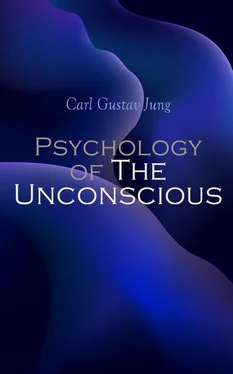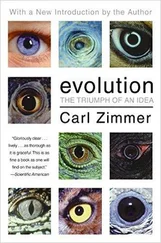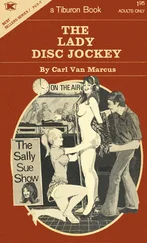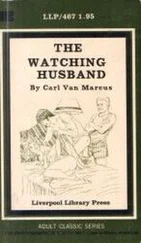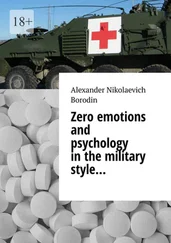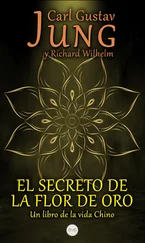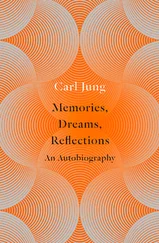1 ...7 8 9 11 12 13 ...25 The enquiry made possible by Freud’s work has already resulted fruitfully; we are indebted to this stimulation for some bold attacks upon the territory of the history of the human mind. There are the works of Riklin, [5]Abraham, [6]Rank, [7]Maeder, [8]Jones, [9]—recently Silberer has joined their ranks with a beautiful investigation entitled “Phantasie und Mythus.” [10]We are indebted to Pfister [11]for a comprehensive work which cannot be overlooked here, and which is of much importance for Christian religious psychology. The leading purpose of these works is the unlocking of historical problems through the application of psychoanalytic knowledge; that is to say, knowledge drawn from the activity of the modern unconscious mind concerning specific historical material.
I must refer the reader entirely to the specified works, in order that he may gain information concerning the extent and the kind of insight which has already been obtained. The explanations are in many cases dubious in particulars; nevertheless, this detracts in no way from the total result. It would be significant enough if only the far-reaching analogy between the psychologic structure of the historical relics and the structure of the recent individual psychologic products alone were demonstrated. This proof is possible of attainment for every intelligent person through the work done up to this time. The analogy prevails especially in symbolism, as Riklin, Rank, Maeder, and Abraham have pointed out with illuminating examples; it is also shown in the individual mechanisms of unconscious work, that is to say in repression, condensation, etc., as Abraham explicitly shows.
Up to the present time the psychoanalytic investigator has turned his interest chiefly to the analysis of the individual psychologic problems. It seems to me, however, that in the present state of affairs there is a more or less imperative demand for the psychoanalyst to broaden the analysis of the individual problems by a comparative study of historical material relating to them, just as Freud has already done in a masterly manner in his book on “Leonardo da Vinci.” [12]For, just as the psychoanalytic conceptions promote understanding of the historic psychologic creations, so reversedly historical materials can shed new light upon individual psychologic problems. These and similar considerations have caused me to turn my attention somewhat more to the historical, in the hope that, out of this, new insight into the foundations of individual psychology might be won.
CHAPTER I
CONCERNING THE TWO KINDS OF THINKING
Table of Contents
It is a well-known fact that one of the principles of analytic psychology is that the dream images are to be understood symbolically; that is to say, that they are not to be taken literally just as they are presented in sleep, but that behind them a hidden meaning has to be surmised. It is this ancient idea of a dream symbolism which has challenged not only criticism, but, in addition to that, the strongest opposition. That dreams may be full of import, and, therefore, something to be interpreted, is certainly neither a strange nor an extraordinary idea. This has been familiar to mankind for thousands of years, and, therefore, seems much like a banal truth. The dream interpretations of the Egyptians and Chaldeans, and the story of Joseph who interpreted Pharaoh’s dreams, are known to every one, and the dream book of Artemidorus is also familiar. From countless inscribed monuments of all times and peoples we learn of foreboding dreams, of significant, of prophetic and also of curative dreams which the Deity sent to the sick, sleeping in the temple. We know the dream of the mother of Augustus, who dreamt she was to be with child by the Deity transformed into a snake. We will not heap up references and examples to bear witness to the existence of a belief in the symbolism of dreams. When an idea is so old, and is so generally believed, it is probably true in some way, and, indeed, as is mostly the case, is not literally true, but is true psychologically . In this distinction lies the reason why the old fogies of science have from time to time thrown away an inherited piece of ancient truth; because it was not literal but psychologic truth. For such discrimination this type of person has at no time had any comprehension.
From our experience, it is hardly conceivable that a God existing outside of ourselves causes dreams, or that the dream, eo ipso, foresees the future prophetically. When we translate this into the psychologic, however, then the ancient theories sound much more reconcilable, namely, the dream arises from a part of the mind unknown to us, but none the less important, and is concerned with the desires for the approaching day . This psychologic formula derived from the ancient superstitious conception of dreams, is, so to speak, exactly identified with the Freudian psychology, which assumes a rising wish from the unconscious to be the source of the dream.
As the old belief teaches, the Deity or the Demon speaks in symbolic speech to the sleeper, and the dream interpreter has the riddle to solve. In modern speech we say this means that the dream is a series of images, which are apparently contradictory and nonsensical, but arise in reality from psychologic material which yields a clear meaning .
Were I to suppose among my readers a far-reaching ignorance of dream analysis, then I should be obliged to illustrate this statement with numerous examples. To-day, however, these things are quite well known, so that one must proceed carefully with every-day dream material, out of consideration for a public educated in these matters. It is a special inconvenience that no dream can be recounted without being obliged to add to it half a life’s history which affords the individual foundations of the dream, but there are some few typical dreams which can be told without too great a ballast. One of these is the dream of the sexual assault, which is especially prevalent among women. A girl sleeping after an evening happily spent in dancing, dreams that a robber breaks open her door noisily and stabs through her body with a lance. This theme, which explains itself, has countless variations, some simple, some complicated. Instead of the lance it is a sword, a dagger, a revolver, a gun, a cannon, a hydrant, a watering pot; or the assault is a burglary, a pursuit, a robbery, or it is some one hidden in the closet or under the bed. Or the danger may be illustrated by wild animals; for instance, a horse which throws the dreamer to the ground and kicks her in the body with his hind foot; lions, tigers, elephants with threatening trunks, and finally snakes in endless variety. Sometimes the snake creeps into the mouth, sometimes it bites the breast like Cleopatra’s legendary asp, sometimes it comes in the rôle of the paradisical snake, or in the variations of Franz Stuck, whose pictures of snakes bear the significant titles “Vice,” “Sin,” “Lust.” The mixture of lust and anxiety is expressed incomparably in the very atmosphere of these pictures, and far more brutally, indeed, than in Mörike’s charming poem.
The Maiden’s First Love Song
What’s in the net?
Behold,
But I am afraid,
Do I grasp a sweet eel,
Do I seize a snake?
Love is a blind
Fisherwoman;
Tell the child
Where to seize.
Already it leaps in my hands.
Oh, Pity, or delight!
With nestlings and turnings
It coils on my breast,
It bites me, oh, wonder!
Boldly through the skin,
It darts under my heart.
Oh, Love, I shudder!
What can I do, what can I begin?
That shuddering thing;
There it crackles within
And coils in a ring.
It must be poisoned.
Here it crawls around.
Читать дальше
